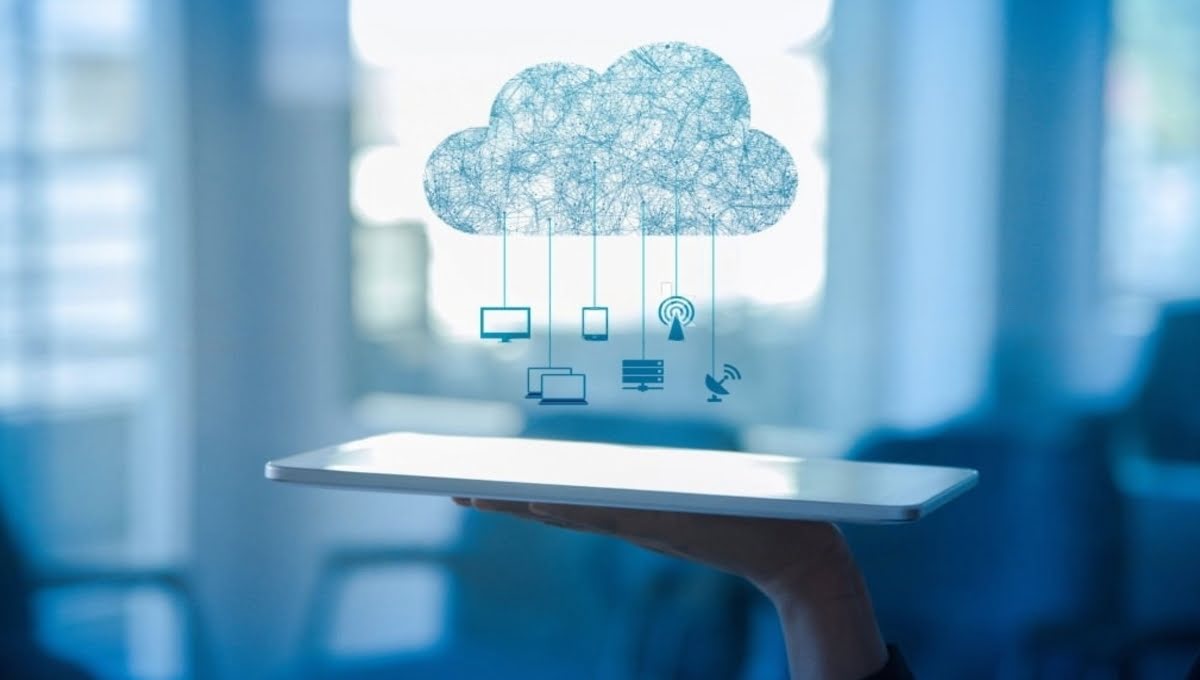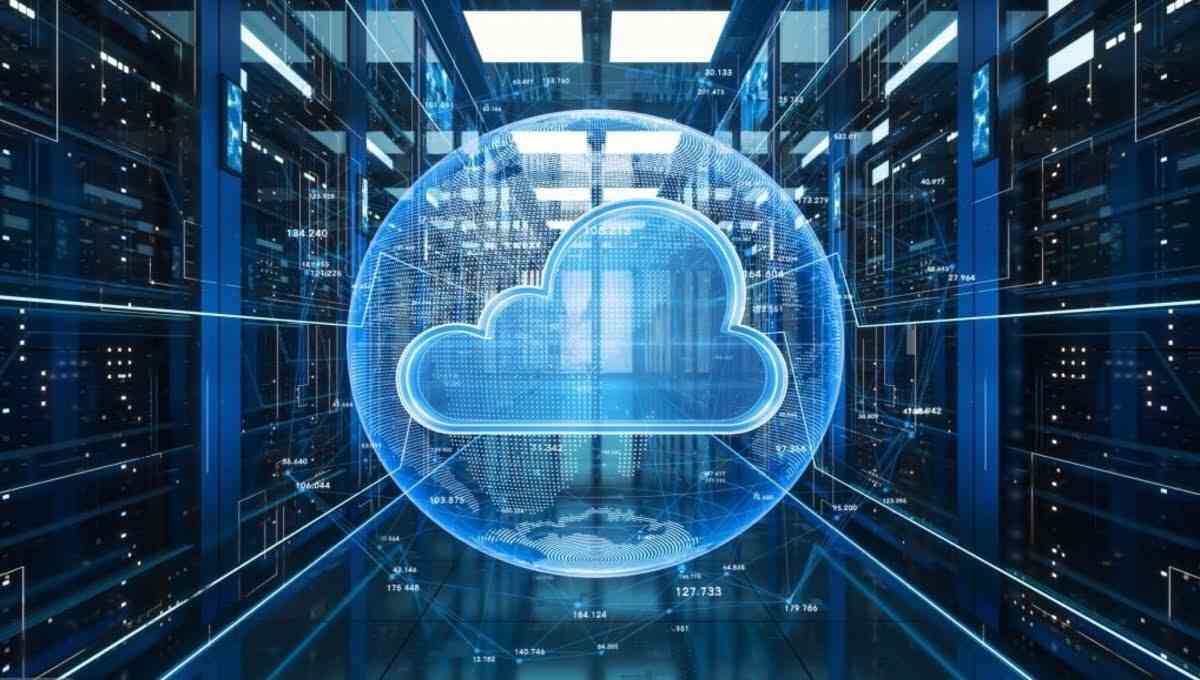CLOUD COMPUTING
Mobile computing and Cloud computing?

In the quickly developing technological landscape of today, two terms that often come up are “mobile computing” and “cloud computing.” While they both play crucial roles in shaping the way we interact with technology, they serve distinct purposes and have unique characteristics. Let’s delve into the world of mobile and cloud computing to understand the key differences and how they impact our digital experiences.
Understanding Mobile Computing
Definition of Mobile Computing
Mobile computing refers to the use of portable computing devices that enable users to access and process information while on the move. These devices include smartphones, tablets, laptops, and wearables. Mobile computing allows users to stay connected to the digital world, regardless of their location.
Features of Mobile Computing
Mobile devices are characterized by their mobility, compactness, and ability to perform a wide range of tasks. They come equipped with various sensors, such as GPS, accelerometers, and gyroscopes, which enhance the user experience by enabling features like location-based services and motion detection.
Examples of Mobile Computing Devices
Examples of mobile computing devices are:
- Smartphones, like iPhones and Android devices
- Tablets, such as iPads and Android tablets
- Laptops, including ultrabooks and 2-in-1 hybrids
- Wearables like smartwatches and fitness trackers
Exploring Cloud Computing
Defining Cloud Computing
Cloud computing involves delivering computing services—such as storage, processing power, and software—over the internet. Users can access these resources on-demand, without the need for extensive local hardware and infrastructure. The “cloud” refers to remote data centers that host and manage these services.
Key Features of Cloud Computing
Scalability, adaptability, and cost-effectiveness are a few of the important benefits of cloud computing. Depending on their demands, users can scale up or down their resources while only paying for what they actually use. As a result, substantial upfront hardware investments are no longer necessary.
Benefits of Cloud Computing
The benefits of cloud computing include:
- Cost Savings: Reduced infrastructure costs and pay-as-you-go pricing
- Global Accessibility: access to resources from anywhere with an internet connection.
- Scalability: Easily adjust resources to accommodate changing demands.
- Automatic Updates: Software updates and maintenance are managed by providers.
Key Differences Between Mobile and Cloud Computing
Here is a table summarizing the key differences between mobile computing and cloud computing:
| Feature | Mobile Computing | Cloud Computing |
|---|---|---|
| Data and application storage | Local device | Remote servers in the cloud |
| Data and application processing | Local device | Remote servers in the cloud |
| Access | Requires a mobile device | Requires an internet connection |
| Scalability | Limited by the capabilities of the device | Unlimited |
| Connectivity Requirements | Mobile computing requires intermittent internet connectivity | Cloud computing demands a stable internet connection for optimal access. |
| Cost | It can be expensive to purchase and maintain devices | More cost-effective than on-premises solutions |
When to Use Mobile Computing?
Scenarios for Mobile Computing
Mobile computing is ideal for:
- Real-time interactions and communication.
- Applications that require hardware features like cameras and sensors
- Situations where internet connectivity is limited.
Advantages and Limitations
Advantages include portability and offline functionality, but limitations include processing power constraints and smaller screen sizes.
When should I opt for cloud computing?
Suitable Situations for Cloud Computing
Cloud computing is suitable for:
- Data storage and backup.
- Resource-intensive tasks like big data analysis.
- Collaboration among geographically dispersed teams
Advantages and Considerations
Advantages encompass scalability and cost-efficiency, but potential concerns involve data security and reliance on internet connectivity.
The Synergy Between Mobile and Cloud Computing
The integration of mobile and cloud computing enhances the user experience by leveraging the strengths of both technologies. Mobile devices can seamlessly access cloud resources, enabling more powerful applications and data storage.
Security Considerations
Mobile Computing Security
Security concerns in mobile computing include device loss, data breaches, and malware attacks. Implementing strong device locks and encryption can mitigate these risks.
Cloud Computing Security
Cloud security entails protecting data from unauthorized access and ensuring the integrity of the cloud infrastructure. Encryption, multi-factor authentication, and regular audits are essential.
The Future of Mobile and Cloud Computing
The future holds deeper integration of these technologies, resulting in more sophisticated applications and services. Mobile devices will become even more reliant on cloud resources for enhanced capabilities.
Conclusion
In a world driven by connectivity and efficiency, both mobile and cloud computing play vital roles in shaping our digital landscape. While mobile computing empowers us with portable devices and real-time interactions, cloud computing offers the scalability and flexibility needed for modern applications. By understanding the differences and synergy between these two technologies, we can make informed choices that best suit our technological needs.
FAQs (Frequently Asked Questions)
Why use cloud computing?
Your company will have more freedom thanks to cloud computing. Without spending money on physical infrastructure, you may easily expand resources and storage to match business demands. The infrastructure required to sustain businesses’ maximum load levels doesn’t need to be purchased or built by businesses.
Can I use cloud computing on my smartphone?
Yes, you can access cloud resources on your smartphone, as long as you have an internet connection
Are there any security risks associated with cloud computing?
While cloud computing offers convenience, there are security concerns, such as data breaches. Employing security measures can mitigate these risks.
Can I work offline with cloud-based applications?
Some cloud applications offer offline functionality, but most require an internet connection for full access.
Which is more cost-effective, mobile computing or cloud computing?
Both have their costs and benefits. Mobile computing’s costs relate to device purchases, while cloud computing offers cost efficiency through pay-as-you-go pricing.
What is the main advantage of integrating mobile and cloud computing?
The integration allows mobile devices to access powerful cloud resources, enhancing the capabilities of applications and data storage.
Does mobile computing need cloud computing?
If you have a large amount of data or require centralized storage that can be accessed from several devices, cloud computing provides scalable and secure storage options. Because of the possibility of restricted capacity, cloud-based synchronization and storage may become more common in mobile computing.
What are the three components of mobile computing?
Mobile communication, mobile hardware, and mobile software are the three main components of mobile computing.
Understanding the Difference
While mobile computing gives us access to data and information via a mobile device, cloud computing enables us to store and manage our data and information. Comprehending the functions and safeguards associated with each enables us to maximize the utilization of our data and capitalize on resources that simplify and arrange said process.

 FUNDAMENTAL2 months ago
FUNDAMENTAL2 months agoHow Cloud Computing Improving Customer Service Processes

 FUNDAMENTAL8 months ago
FUNDAMENTAL8 months agoWhat is cloud computing? A Comprehensive Guide

 FUNDAMENTAL8 months ago
FUNDAMENTAL8 months agoEvolution of Cloud Computing

 FUNDAMENTAL4 months ago
FUNDAMENTAL4 months agoHow can Cloud Technology Help Small Businesses ?

 FUNDAMENTAL2 months ago
FUNDAMENTAL2 months agoIaaS PaaS and SaaS in cloud computing

 CLOUD COMPUTING2 months ago
CLOUD COMPUTING2 months agoWhat Is VlAN and VSAN In Cloud Computing?

 FUNDAMENTAL2 months ago
FUNDAMENTAL2 months agoWhich is a fundamental attribute of cloud computing?

 CLOUD COMPUTING2 months ago
CLOUD COMPUTING2 months agoHow to Make Your Own Cloud Storage : A Step-by-Step Guide










snapteca website
26 September 2023 at 16:13
Thanks for your personal marvelous posting! I seriously enjoyed reading it,
you happen to be a great author.I will be sure to bookmark
your blog and will eventually come back from now on. I want to encourage continue your great posts, have a nice day!
smit
26 September 2023 at 17:22
thank you sir for the amazing feedback Sir , keep visit and improve yourself with us
snapteca website
26 September 2023 at 16:15
Hello! I understand this is somewhat off-topic but I had to ask.
Does operating a well-established blog such as yours take a massive amount work?
I’m brand new to running a blog however I do write in my journal everyday.
I’d like to start a blog so I will be able to share my own experience
and thoughts online. Please let me know if you
have any kind of suggestions or tips for brand new aspiring
blog owners. Thankyou!
smit
26 September 2023 at 17:33
Yes, running a well-established blog takes a massive amount of work. It requires consistent effort to create high-quality content, promote your blog, and build an audience. However, it is also incredibly rewarding. Blogging can be a great way to share your thoughts and experiences with the world, connect with others who share your interests, and even make money.
mahesh
2 November 2023 at 11:10
Thanks a bunch for sharing this with all of us you actually know what you are talking about! Bookmarked. Please also visit my site.
bald Cartoon Characters
13 February 2024 at 10:43
wonderful points altogether, you simply won a
logo new reader. What might you suggest about your submit that
you just made a few days in the past? Any
positive?
Alan
19 February 2024 at 08:59
Great post. I used to be checking constantly this weblog and I’m inspired!
Extremely helpful info specifically the final section 🙂 I
deal with such info a lot. I was seeking this certain info for a very long time.
Thanks and good luck.